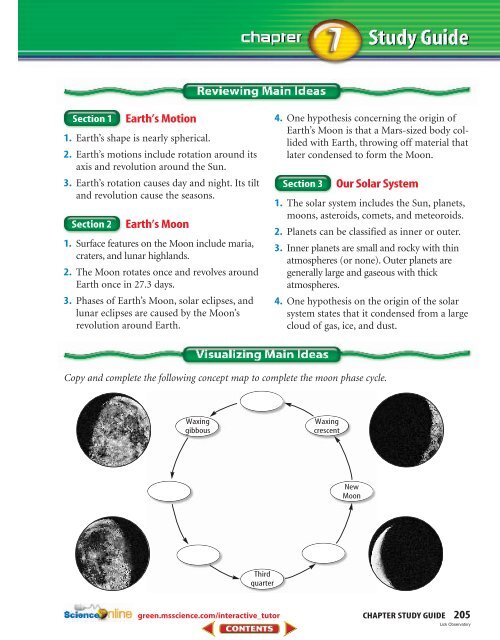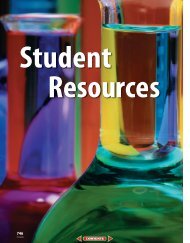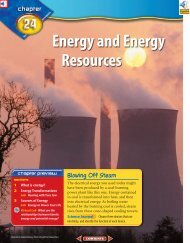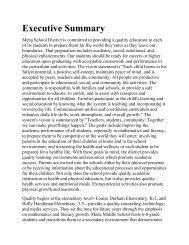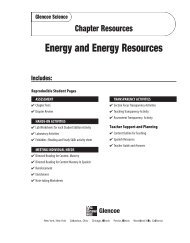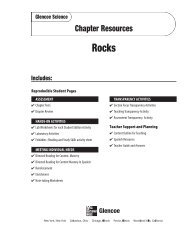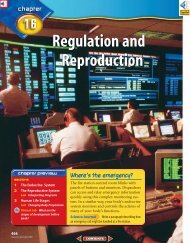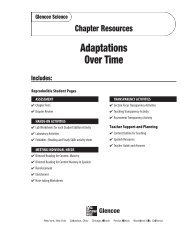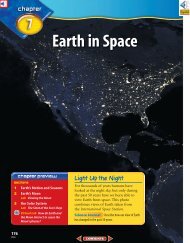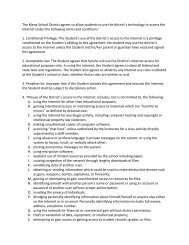Chapter 7: Earth in Space
Chapter 7: Earth in Space
Chapter 7: Earth in Space
You also want an ePaper? Increase the reach of your titles
YUMPU automatically turns print PDFs into web optimized ePapers that Google loves.
<strong>Earth</strong>’s Motion<br />
1. <strong>Earth</strong>’s shape is nearly spherical.<br />
2. <strong>Earth</strong>’s motions <strong>in</strong>clude rotation around its<br />
axis and revolution around the Sun.<br />
3. <strong>Earth</strong>’s rotation causes day and night. Its tilt<br />
and revolution cause the seasons.<br />
<strong>Earth</strong>’s Moon<br />
1. Surface features on the Moon <strong>in</strong>clude maria,<br />
craters, and lunar highlands.<br />
2. The Moon rotates once and revolves around<br />
<strong>Earth</strong> once <strong>in</strong> 27.3 days.<br />
3. Phases of <strong>Earth</strong>’s Moon, solar eclipses, and<br />
lunar eclipses are caused by the Moon’s<br />
revolution around <strong>Earth</strong>.<br />
4. One hypothesis concern<strong>in</strong>g the orig<strong>in</strong> of<br />
<strong>Earth</strong>’s Moon is that a Mars-sized body collided<br />
with <strong>Earth</strong>, throw<strong>in</strong>g off material that<br />
later condensed to form the Moon.<br />
Our Solar System<br />
1. The solar system <strong>in</strong>cludes the Sun, planets,<br />
moons, asteroids, comets, and meteoroids.<br />
2. Planets can be classified as <strong>in</strong>ner or outer.<br />
3. Inner planets are small and rocky with th<strong>in</strong><br />
atmospheres (or none). Outer planets are<br />
generally large and gaseous with thick<br />
atmospheres.<br />
4. One hypothesis on the orig<strong>in</strong> of the solar<br />
system states that it condensed from a large<br />
cloud of gas, ice, and dust.<br />
Copy and complete the follow<strong>in</strong>g concept map to complete the moon phase cycle.<br />
Wax<strong>in</strong>g<br />
gibbous<br />
Third<br />
quarter<br />
green.msscience.com/<strong>in</strong>teractive_tutor<br />
Wax<strong>in</strong>g<br />
crescent<br />
New<br />
Moon<br />
CHAPTER STUDY GUIDE 205<br />
Lick Observatory


